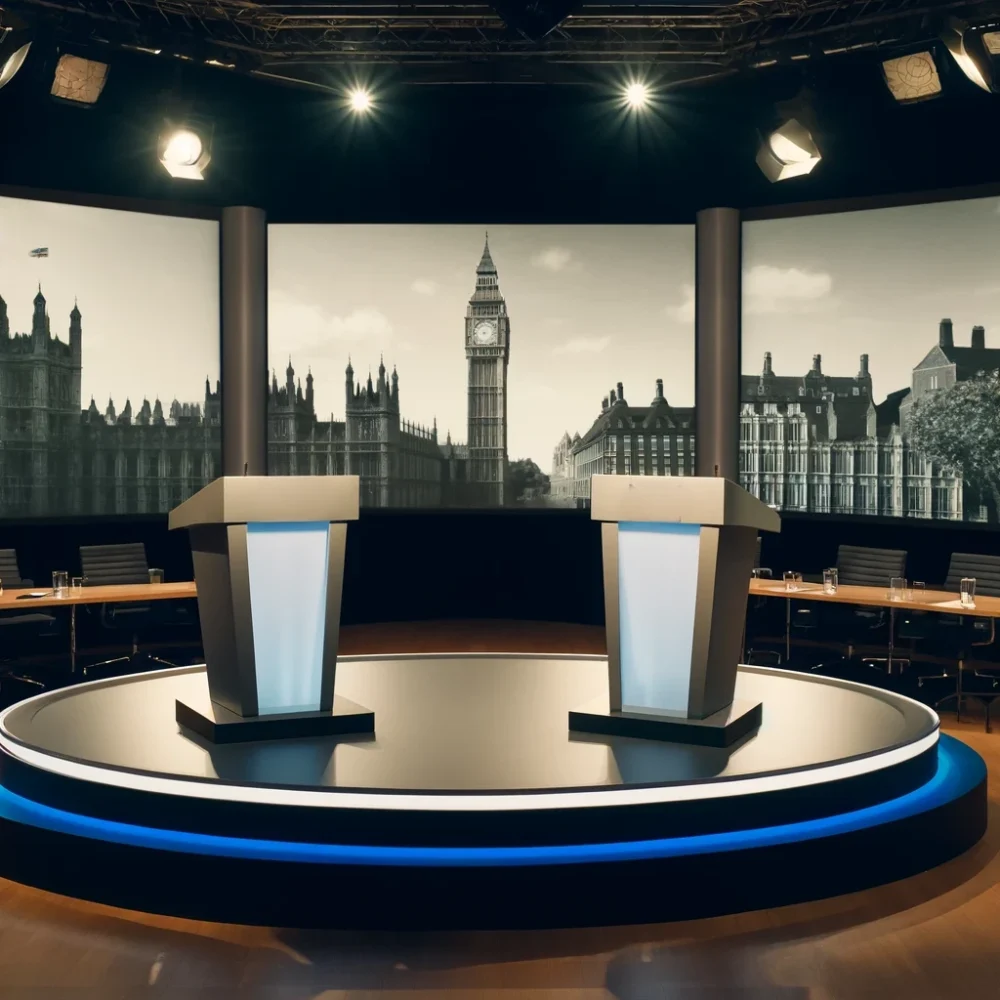Losing touch with reality

It feels strange to live through an election period where a change of Government is forecast with—by the sober analysis of The Economist—99% certainty. While it’s democratically essential, even going through the motions of the campaign feels a little disconnected from reality, even before one considers the specific promises made by candidates.
Tonight, Julie Etchingham will host the first televised debate of this election, ostensibly between the two candidates who could plausibly be Prime Minister on 5 July—though it’s hard not to wonder whether more people ought to be involved if a 1 in 100 chance is considered ‘plausible’. It feels like false equivalence—not that I have a better suggestion. It also feels narrowly composed: the recent experience of Prime Ministers leaving office between elections shows us that the candidates are asking us to place our confidence in the leader selection process for each of their parties as much as in them personally.
On Saturday, the always-excellent Stephen Bush had a brilliant article in the FT Weekend exploring how British politics has lost touch with reality. He points out that both Rishi Sunak and Keir Starmer are guilty of promising things that they cannot plausibly deliver. It is this three-paragraph excoriation of Rishi Sunak’s failure to make even the simplest of changes that particularly stands out:
Remember, too, that Sunak has been unable to achieve some seemingly achievable policy challenges. Although it is early days, it is hard to see how any political party in the general election will manage a better argument as to why Sunak should not be re-elected than the one that came from the man himself. He described his failed attempt to ban future generations from buying cigarettes as evidence of “the type of prime minister I am”, and he was right. Rishi Sunak is the type of prime minister who, when he wants to do something, when it is backed by large majorities in both his own party and the Labour opposition . . . still can’t reliably deliver.
In this case, his attempt to bring about a “smoke-free generation” — the flagship not only of his attempt to rebrand himself as a “change candidate” last autumn but also one of his signature achievements in his speech calling the election — came unstuck because he couldn’t manage the simple trick of not expediting the legal change ahead of an election he didn’t need to hold.
Whether you agree with Sunak’s phased smoking ban or not, the difficult truth for the prime minister is that passing his ban into law was a public policy challenge with the difficulty turned all the way down to “casual”. Yet he could not manage it. Nor is it an isolated example. One of Sunak’s earliest initiatives was a push to teach all children in England a form of maths until 18. If, as looks likely, he leaves office in five weeks’ time, the country will be less equipped to teach maths to 18 than when he took office — because there are fewer maths teachers. There is no prospect that Sunak, a limited prime minister with few achievements to his name, is going to be able to keep the promises he is now making, any more than he could make the snow fall on Christmas Day and the sun shine in June and July.
In 2024, comparisons are inevitably drawn with the 1997 election. In the exit poll for that election, 57% of the respondents felt that John Major could be trusted, versus 56% for Tony Blair. At the start of the 2024 election campaign, 21% of respondents considered Rishi Sunak to be trustworthy, and 28% considered Keir Starmer to be trustworthy. Those figures portend poorly for Sunak, but perhaps worse for the population, representing as they do a complete collapse of trust in politicians.
We can debate how much of that collapse is attributable to a failure to keep simple promises, and how much to the criminal behaviour of some politicians. But it seems unlikely that the continued disconnect between political rhetoric and reality will repair trust—or that a fantastical television debate will do anything but further damage trust in our politicians.
The image at the top of this post was generated by DALL·E 3.
This post was filed under: News and Comment, Politics, FT Weekend, ITV, Julie Etchingham, Keir Starmer, Rishi Sunak, Stephen Bush, The Economist.